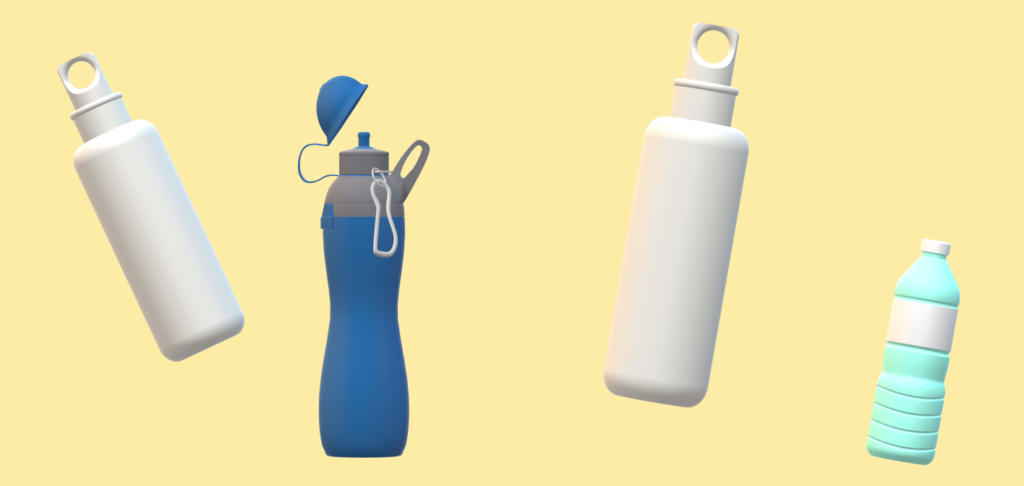Table of Contents
Introduction
Hydration is a cornerstone of good health. Water makes up about 60% of the human body and is involved in numerous essential functions, from regulating body temperature to facilitating digestion and nutrient absorption. Despite its importance, many people do not consume enough fluids daily, leading to dehydration and its associated health problems. In this post, we’ll delve into the importance of hydration and provide top tips to stay hydrated every day.
Why Hydration is Important
Water is vital for the body’s basic functions. It helps to:
- Regulate Body Temperature: Sweating and respiration help control body temperature, and water is essential for these processes.
- Lubricate Joints: Adequate hydration keeps joints lubricated and functioning properly, reducing the risk of joint pain and disorders like arthritis.
- Protect Sensitive Tissues: Organs such as the brain, spinal cord, and eyes are protected by adequate fluid levels, which help cushion and safeguard these critical areas.
- Aid Digestion and Nutrient Absorption: Water is crucial for digestion, helping dissolve nutrients and transport them to cells.
- Remove Waste Products: Proper hydration facilitates kidney function, allowing for the efficient removal of waste products through urine.
Dehydration can lead to several health issues, including headaches, kidney stones, urinary tract infections, and in severe cases, it can be life-threatening. Understanding the importance of hydration and maintaining it is key to good health.
Top Tips to Stay Hydrated Every Day
1. Drink Plenty of Water

To maintain proper hydration, it is best to consume a considerable amount of water. Aim for at least eight 8-ounce glasses, or about 2 liters, of water a day. The needs of each person can differ depending on factors such as age, gender, climate, and level of physical activity. Monitoring your body’s signals, such as thirst and the color of your urine (which should be light yellow), can help you gauge your hydration status.
2. Eat Hydrating Foods
Incorporating water-rich foods into your diet can contribute significantly to your daily fluid intake. Fruits like watermelon, strawberries, and oranges, and vegetables such as cucumbers, lettuce, and celery, are excellent choices. In addition to keeping you hydrated, these foods also contain vital vitamins, minerals, and antioxidants that promote good overall health.
3. Carry a Water Bottle
Keeping a water bottle with you at all times acts as a continuous prompt to stay hydrated. Opt for a reusable water bottle to stay hydrated while also being environmentally friendly. This habit can make it easier to track your water intake and ensure you’re meeting your hydration goals throughout the day.
4. Set Reminders
If you often forget to drink water, set reminders on your phone or use a hydration app. These tools can prompt you to take a sip regularly, ensuring you stay hydrated throughout the day. Some apps even allow you to log your water intake and monitor your progress.
5. Start Your Day with Water
Kickstart your day by drinking a glass of water first thing in the morning. This helps replenish fluids lost overnight and sets a positive tone for the rest of the day. Consider keeping a glass of water by your bedside to make this a seamless part of your morning routine.
6. Monitor Your Hydration Levels
Keep an eye out for indications of dehydration, such as concentrated urine, parched mouth, weariness, and lightheadedness. Should you experience any of these warning signs, make sure to drink more water.Regularly checking the color of your urine can be an easy way to monitor your hydration status—aim for a light yellow color, indicating proper hydration.
7. Flavor Your Water
If you find plain water boring, add natural flavors like lemon, lime, cucumber, or mint. This could enhance your drinking experience and motivate you to increase your water intake. Experiment with different combinations to find what you like best, and switch it up to keep things interesting.
8. Limit Caffeine and Alcohol
Both caffeine and alcohol can dehydrate your body. While it’s fine to enjoy them in moderation, make sure to balance them with plenty of water to stay hydrated. For instance, follow each alcoholic or caffeinated drink with a glass of water to help offset their dehydrating effects.
9. Drink Water: Before you exercise, While you exercise, After you exercise
Physical activity increases water loss through sweat. Ensure you drink water before, during, and after exercise to maintain hydration levels and support muscle function. If you’re engaging in intense or prolonged exercise, consider drinks that contain electrolytes to replenish what you lose through sweat.
10. Pay Attention to Weather Conditions
Hot and humid weather can increase your body’s water needs. Drink extra water on hot days to compensate for the additional loss of fluids through sweating. Similarly, during cold weather, staying hydrated is still important as indoor heating can cause dehydration.
Conclusion
Ensuring your body remains well-hydrated is crucial for promoting overall health and wellness. By following these top tips, you can ensure that you stay hydrated every day, supporting your body’s vital functions and overall health. Make hydration a priority in your daily routine and enjoy the benefits of a well-hydrated body.
Proper hydration is a simple yet powerful way to improve your health. Whether you’re at home, work, or on the go, adopting habits that promote regular water intake can make a significant difference. Remember, the key to staying hydrated is consistency. Drink water throughout the day, enjoy hydrating foods, and be mindful of your body’s needs to achieve and maintain optimal hydration.
By integrating these practices into your daily routine, you can look forward to a healthier, more vibrant life. So, raise a glass to good health and make staying hydrated a daily habit.



